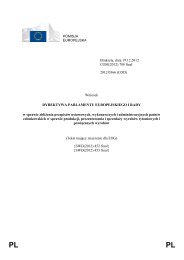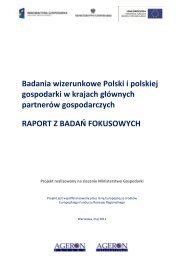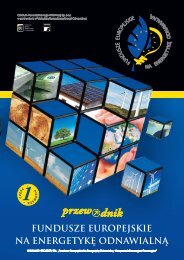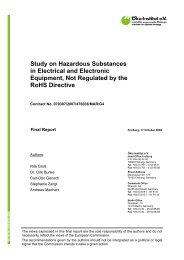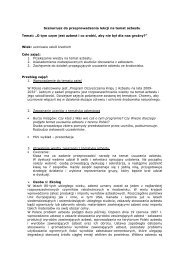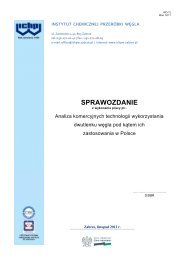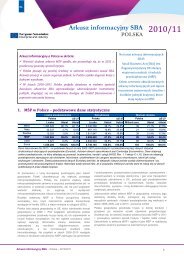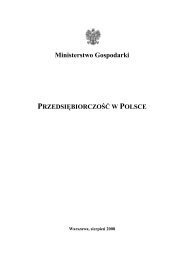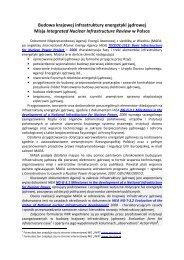Zielona księga w sprawie partnerstw publiczno-prywatnych i prawa ...
Zielona księga w sprawie partnerstw publiczno-prywatnych i prawa ...
Zielona księga w sprawie partnerstw publiczno-prywatnych i prawa ...
Create successful ePaper yourself
Turn your PDF publications into a flip-book with our unique Google optimized e-Paper software.
authorities to enter into PPPs. In spite of their practical importance, only few<br />
provisions of secondary Community legislation coordinate the award procedures<br />
for works concessions. for their part, the rules governing the award of service<br />
concessions apply only by reference to the principles resulting from Articles 43 and<br />
49 of the EC Treaty, in particular the principles of transparency, equality of<br />
treatment, proportionality and mutual recognition. Against this background, the<br />
Green Paper (question 6) asked whether in the view of stakeholders a Community<br />
legislative initiative designed to regulate the procedure for awarding concessions<br />
was desirable.<br />
The great majority of stakeholders participating in the consultation confirmed the<br />
demand for greater legal certainty as regards the Community rules governing the<br />
award of concessions. Opinions on how to provide such legal certainty – via<br />
legislation or a non-binding, interpretative instrument – were, however, divided.<br />
3.2. Options to provide legal certainty on concessions<br />
The consultation showed the demand for a stable, consistent legal environment for<br />
the award of concessions at EU level, in particular to reduce transaction costs (by<br />
decreasing legal risks) and more generally to enhance competition. Many<br />
stakeholders argued that increasing legal certainty and effective competition in the<br />
area of concessions would be a practical way of promoting PPPs, thereby<br />
increasing the contribution that private project financing can make in times of tight<br />
public budgets. Private stakeholders particularly underlined that only EU level<br />
action could provide such legal certainty avoiding at the same time the problems<br />
posed by the patchwork of national legislation, especially with regard to the new<br />
Member States which need private finance most. There are basically two ways to<br />
meet this demand : (1) non-binding guidance, in particular in the form of an<br />
Interpretative Communication, and (2) legislation spelling out the obligations<br />
emanating from general EC Treaty principles.<br />
Interpretative Communication<br />
The Commission has already (in April 2000) adopted an Interpretative<br />
Communication on Concessions under Community Law which explains the scope<br />
and content of the EC Treaty principles applicable to the award of concessions.<br />
Many stakeholders argued that an Interpretative Communication was a quick and<br />
effective tool to provide clarification. However, comments made by key<br />
stakeholders in the course of the debate indicate that the existing Interpretative<br />
Communication on concessions has failed to spell out in a sufficiently clear manner<br />
the implications of EC Treaty principles for the award of concessions. Contributions<br />
from several important stakeholders were – surprisingly – still based on the<br />
assumption that existing EC law obligations do not require the award of<br />
concessions to be opened up to competition, in particular by enabling all<br />
undertakings to express their interest in obtaining concessions.<br />
Other stakeholders considered an Interpretative Communication to be an ideal<br />
instrument to provide a clearer delimitation between public procurement contracts<br />
and concessions. However, the scope for certainty provided by an Interpretative<br />
Communication is limited, as it merely construes existing law. In many cases a lack<br />
63





